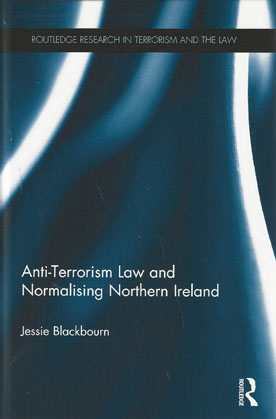We are now closed for the Christmas and New Year period, returning on Monday 5th January 2026. Orders placed during this time will be processed upon our return on 5th January.

The Northern Ireland peace process has been heralded by those who participated in it as a successful example of transformation from a violent conflict to a peaceful society.
The book examines the implementation of the Northern Ireland peace process as a whole. However, its main focus is on the impact of new types of terrorism, and government responses to that new terrorism, on the process of normalising Northern Ireland.
The internal and external factors that have impeded Northern Ireland's transformation from an exceptional part of the UK to one that is consistent with the political and societal features of the other regions are analysed. It also considers the normalisation of 'post-conflict' Northern Ireland in the context of the expansion of anti-terrorism legislation for international terrorism in the whole of the UK.
In doing so the book highlights the continuing use of exceptional anti-terrorism laws in Northern Ireland outside of the emergency for which they were originally intended, as well as revealing the extent to which Northern Ireland's past anti-terrorism laws have been re-enacted as permanent, non-emergency legislation for the whole of the UK.
The book thus demonstrates the difficulties that transitional or post-conflict states face in attempting to wind back extraordinary counter-terrorism policies after periods of violence have been brought to an end.